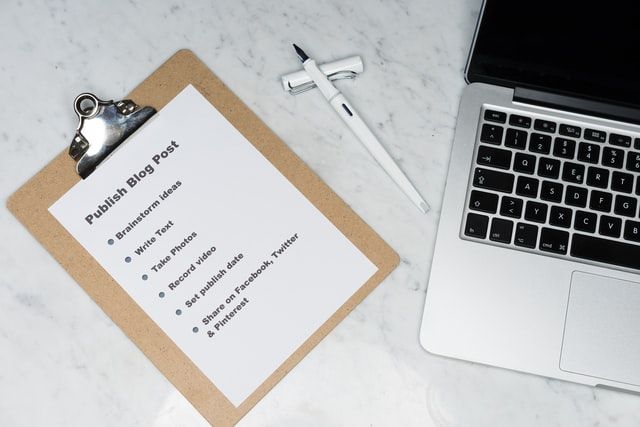5 tips to break up your workdays while working from home as a developer

As you might know, I'm a young developer. In my early days, I always thought that working as long as possible was the way to achieve my goals. And in a way, it helped me a lot, but there is a downside to this approach. You tend to burn out on programming from time to time. And this is normal, but often ignored by working "even harder".
My solution to this problem was always working out, but this is not for everyone. That's why I wanted to find a way for every developer to break up the workdays and get the rest you deserve. Best case scenario, you will even get more work done by working less. Crazy right?
As a developer, we work very goal-oriented. Every feature has acceptance criteria and has to be finished within a certain period of time. This can put a lot of pressure on the developer and certainly more junior ones. In the beginning, it's difficult to complete the issues within this timeframe and you get the feeling you have to work on it in your free time. And as we all know, that's not the thing you should do during your free time.
While working from home, I find it's even more difficult to close up the workday. Let's discuss some things you can do to break up your workdays while working from home.
No-code day
The first thing that really works for me, is a no-code day. This day is either Saturday or Sunday for me. On this day, I write blog posts, listen to audiobooks, and sometimes even read about new technologies, but I don't write a line of code. This helps me to remove the focus on the pile of work that is waiting for me and allows me to do other things that I enjoy.

I never knew that it would even improve my productivity by giving programming a rest. And what I also saw, is that it gives me a motivation boost. Certainly during these difficult times of Covid where we work from home and don't have a real break from the working environment.
What also works for me is to create a plan of attack for the next week during the no-code day. A good schedule will be beneficial in the long run, because you can simply focus on executing the plan, instead of wasting your precious coding time figuring out what to do.
Take breaks like you would at the office
If you're used to working at the office, you probably take some breaks during the day and a pretty long lunch break. But when you have a pile of work waiting for you, you tend to take fewer breaks when you're sitting at home. I tend to do this as well.
Things like eating during a video call to avoid "wasting time" or even skip breakfast, because you have a call at 9 AM and still have to finish your demo. I solved this problem by scheduling three breaks at certain hours. When you plan out your days in the week, you can easily see where breaks can fit in. These breaks will reduce your stress levels by a lot.
Create a separate workspace
I know this is not always possible for everyone, but for those of you who can, make sure to separate your working environment from your private environments. I turned a bedroom into an office to be able to work from home and I only sit there while working. I never work from any of the other rooms.
This helps me to set the mindset to relax once I get out of my office. Leaving the office finishes off the day and allows me to start doing something else. I choose to go for a run or a walk and start my evening.
Sleep
This is not a specific tip for working from home, but it's so important that I have to put it in here. You might be coding at night and it could carry you away. When I get in the zone, it could result in staying awake till 2 AM, and that's not good when you're waking up at 6 AM.

To make sure you sleep well, try and put away all devices 1 hour before going to bed. Maybe you could pick up a book and read some pages to finish off your workday.
Turn off your notifications
I know the FOMO (Fear Of Missing Out) is very high. Certainly when you have an active and interesting Slack in your company. But try turning off your notifications for 1 day and check it 3 times a day. You will thank me later.
This improved my productivity by at least 20% on the first day. I also figured out that checking my emails only 3 times a day has the same impact because mails are not that urgent. When the matter is urgent enough, they will just call you. That's why I check my emails at 7 AM, 11 AM and 4 PM.
I tested out these tips over the last couple of months, and I must say it helped me a lot and I hope they can help you as well. If you want to read more on this topic, you should certainly check out my blog The 6 Things I Do to Motivate Myself Every Single Day.




